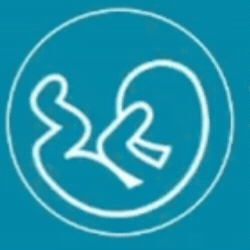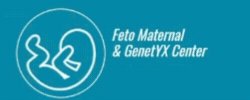Pregnancy and the period following childbirth are profound times of change for women. While many experience joy and excitement, some face significant emotional challenges. Antepartum and postpartum depression are critical issues that can impact the well-being of both the mother and her baby. At Feto Maternal & GenetYX Center in Dubai, we are dedicated to providing support and resources to help manage antepartum and postpartum depression effectively.
What is Antepartum Depression?
Antepartum depression, also known as prenatal depression, occurs during pregnancy. It can affect up to 15% of pregnant women, making it a common and concerning condition. Symptoms may include persistent sadness, anxiety, and irritability, which can affect daily functioning and the pregnancy experience. Learn more about antepartum depression from the Mayo Clinic.

Signs and Symptoms of Antepartum Depression:
- Persistent feelings of sadness or emptiness
- Severe fatigue and lack of energy
- Difficulty concentrating or making decisions
- Changes in appetite and sleep patterns
- Feelings of worthlessness or guilt
Causes of Antepartum Depression:
Antepartum depression can arise from a combination of factors including hormonal changes, personal history of depression, and stressful life events. Understanding these causes is essential for effective management and treatment. Read about the causes and risk factors on WebMD
Impact on Pregnancy:
What is Postpartum Depression?
Postpartum depression (PPD) occurs after childbirth and affects about 10-20% of new mothers. It differs from the “baby blues,” which are common and typically short-lived. PPD can interfere with a mother’s ability to care for herself and her baby, leading to more severe emotional distress. Find out more about postpartum depression from the American Psychological Association.

Signs and Symptoms of Postpartum Depression:
- Persistent sadness or hopelessness
- Excessive worry or anxiety about the baby
- Severe fatigue and trouble sleeping
- Difficulty bonding with the baby
- Thoughts of self-harm or harming the baby
Causes of Postpartum Depression:
Postpartum depression may be triggered by hormonal changes after childbirth, lack of sleep, and the overwhelming responsibilities of new motherhood. Other factors such as a history of mental health issues or lack of support can also contribute.
Treatment and Management:
Effective management of antepartum and postpartum depression involves a combination of strategies:
- Professional Counseling and Therapy: Cognitive-behavioral therapy (CBT) and other therapeutic approaches can be beneficial. Therapy can help address negative thought patterns and develop coping strategies.
- Medication: Antidepressants may be prescribed by a healthcare provider if necessary. It’s important to discuss the risks and benefits with your doctor, especially if you are breastfeeding.
- Support Systems: Building a strong support network of family and friends can provide emotional support and practical help. Joining support groups for new mothers can also be beneficial.
- Self-Care: Engaging in self-care practices, such as regular exercise, healthy eating, and adequate rest, can improve overall well-being. Simple activities like meditation and journaling can also help manage stress.
Seeking Help:
If you or someone you know is experiencing symptoms of antepartum or postpartum depression, it is crucial to seek professional help. At Feto Maternal & GenetYX Center, our experienced team offers comprehensive support and treatment options tailored to individual needs. Early intervention and ongoing support can significantly improve outcomes for both mother and baby.
Additional Resources:
For more information and resources on antepartum and postpartum depression, consider reaching out to:
- Local Support Groups: Many communities have groups specifically for new mothers dealing with postpartum depression.
- Online Forums: Websites like Postpartum Support International offer online support and resources.
- Healthcare Providers: Regular check-ups with your obstetrician or family doctor can provide ongoing support and treatment adjustments.
Understanding and addressing antepartum and postpartum depression is essential for the health of both mother and baby. By recognizing the signs, seeking appropriate treatment, and building a supportive environment, women can navigate these challenging times more effectively. Contact Feto Maternal & GenetYX Center in Dubai for personalized support and resources to help manage these conditions.
At FMGC, we understand the emotional and physical toll of pregnancies. Our team of best obstetrics gynecologists are committed to providing compassionate care and comprehensive support to help you through this blessed time. If you or a loved one is expecting, please reach out to us for expert care and guidance.
Contact Us: Feto Maternal & GenetYX Center Dubai, UAE
Follow Us on Social Media: Facebook: FMGC Facebook
Instagram: FMGC Instagram
LinkedIn: FMGC LinkedIn
Twitter: FMGC Twitter

